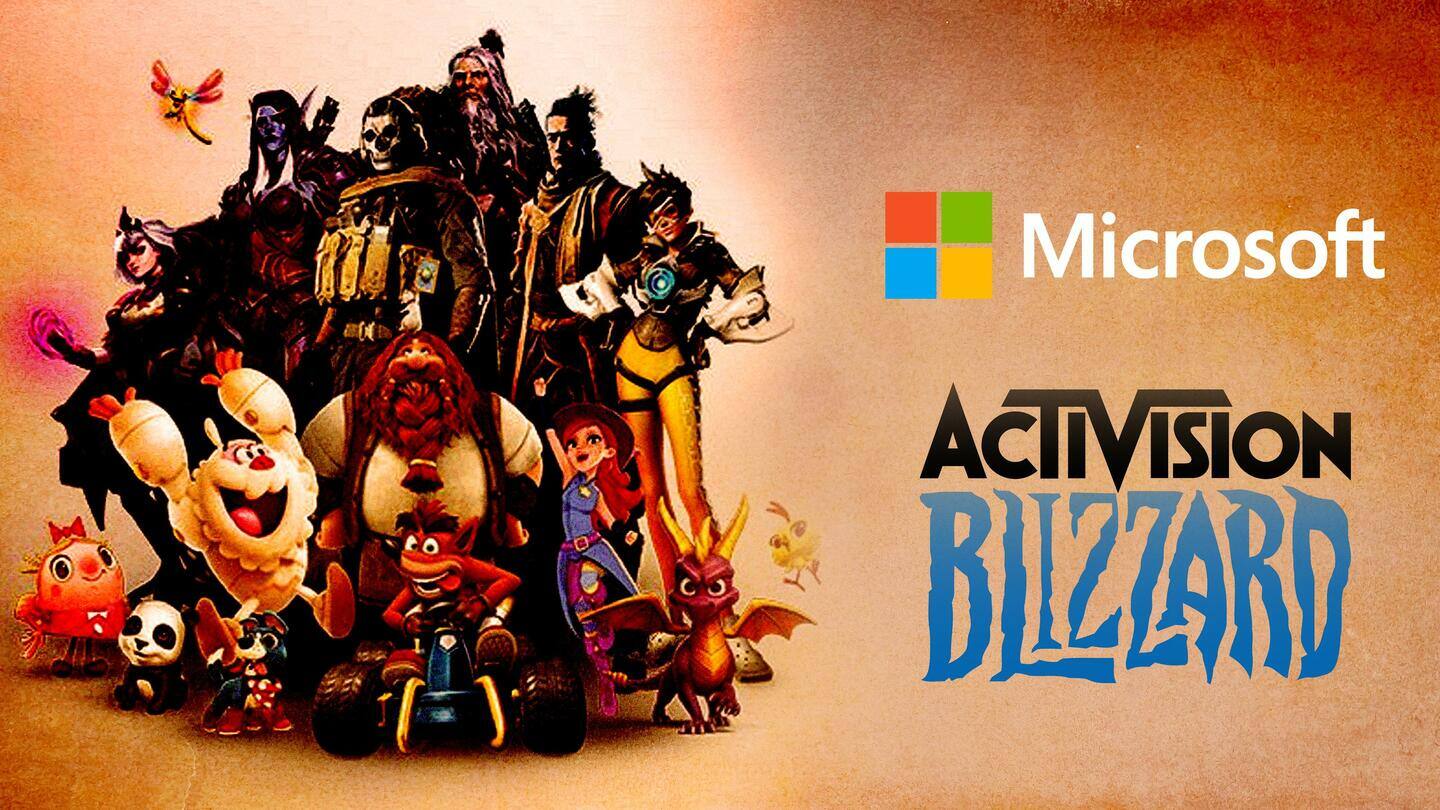
Microsoft-Activision Blizzard's $69 billion deal: The good, bad, and ugly
What's the story
At the beginning of this year, Microsoft sent shockwaves through the gaming and tech industry with its announcement that it would acquire Activision Blizzard for $68.7 billion.
The proposed acquisition of Activision invited both industrial and regulatory scrutiny, culminating in the newly announced Federal Trade Commission (FTC) lawsuit to block the deal.
Let's trace the deal from the beginning and the related concerns.
The beginning
Activision Blizzard was embroiled in sexual harassment scandals
Prior to Microsoft's announcement, Activision was embroiled in scandals. The company was accused of creating a culture of constant sexual harassment in a lawsuit by California's Department of Fair Employment and Housing (DFEH).
Later, a Wall Street Journal report suggested that CEO Bobby Kotick was aware of the harassment and he even fired a woman who was allegedly being sexually harassed by his pilot.
Microsft's involvement
Microsft approached Activision after the WSJ report
It is the scandals that brought Microsoft into the picture. According to SEC filings of the merger, Microsoft approached Activision three days after The Wall Street Journal report about Kotick in November 2021.
The early talks between the two companies involved Phil Spences, the then-chief of Xbox, and Kotick. Later, Microsoft CEO Satya Nadella also joined the discussions.
Other offers
Kotick was hesitant to sell the company
Activision was also in talks with other companies including Meta. However, Microsoft's aggressive push for the deal meant that the two companies agreed on terms even before others entered the picture.
Although Kotick was hesitant about selling the company, the board gave the go-ahead. This is how Microsoft's $68.7 billion proposed acquisition of Activision Blizzard came to being.
The deal
Microsoft will pay $95/share to Activision
Microsft will pay $95/share in an all-cash deal to acquire Activision. The deal includes iconic franchises, including Call of Duty, Warcraft, and Candy Crush.
If the deal doesn't go through due to "injunctions rising from antitrust laws," Microsft will have to pay a termination fee between $2-3 billion.
Similarly, Activision will have to pay $2.27 billion if its shareholders vote against the deal.
Benefits
The deal will be boost for Xbox and metaverse ambitions
The acquisition of Activision will make Microsft the third-largest gaming company behind Tencent and Sony. The company will own games under Activision, Blizzard, and King banners.
The deal will be a huge boost for Microsft's Xbox platform. It will also help the company's metaverse ambitions.
Many look at metaverse as an extension of gaming. Activision's World of Warcraft is a suitable example of this.
Scrutiny
The deal attracted competition watchdogs
It was clear from the onset that Microsft's plan to acquire Activision will invite scrutiny from various corners for multiple reasons.
If it goes through, it will be the biggest deal in gaming by far. Add to that the kind of games that are owned by Activision.
This is enough to attract any competition watchdog to poke its nose deep into the deal.
Current probe
Competition watchdog in the UK has announced an in-depth probe
In September, the Competition and Markets Authority (CMA) of the UK announced a deep probe into Microsft's proposed acquisition of Activision.
The regulator's in-depth investigation is on the basis that the acquisition may result in a substantial lessening of competition in the market.
After months of review, the US FTC has announced its decision to block the deal as well.
Under the scanner
FTC is worried that Microsft might hurt the competition
FTC's lawsuit against the deal is based on the fact that Microsoft's acquisition of Activision will severely affect completion. The competition watchdog said that being one of the leading console makers, the acquisition would give Microsft an unfair advantage.
It said that Microsoft might hurt competition by making Activision games exclusive, or manipulating the prices or quality of the games on other platforms.
View of rivals
Sony and Nintendo are not happy with the deal
Microsft's rivals such as Sony and Nintendo have also expressed their concerns about the deal. The UK probe is a result of a complaint by Sony.
"This deal would give Microsoft's Xbox ecosystem a unique combination of tech and content, and hence a dominant position in gaming, with devastating consequences for consumers, independent developers, and Sony itself," a Sony PlayStation spokesperson had said.
Flagship franchise
Sony is concerned about 'Call of Duty' becoming Xbox-exclusive
Call of Duty is the main bone of contention between Microsft and its rivals. The highly successful franchise has been historically multi-platform.
Sony is worried that Microsft might make it an Xbox exclusive. However, Microsft has not shown any such inclinations yet.
In fact, the tech giant has signed a deal to bring Call of Duty to Nintendo for the next 10 years.